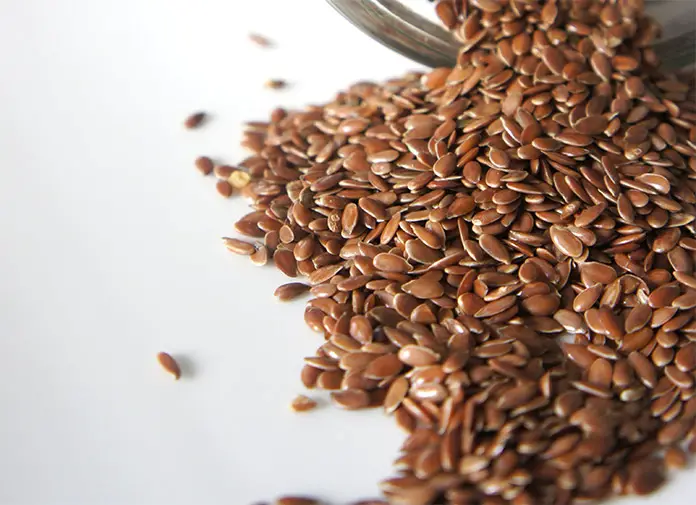Is It Safe To Take Laxatives During Pregnancy? Yes, you can use laxatives during pregnancy upon being prescribed. It’s better to avoid laxatives in the later trimesters. Amongst the many laxatives available, only certain ones are safe.
Constipation during pregnancy, not letting you sleep?
Just as you start to reach out to the bottle of laxative… you hesitate for a second.
Questions pop up in your mind. ?

Is It Safe To Take Laxatives During Pregnancy?
First, let’s know what is a laxative. What are its constituents, and is it safe for the baby and me?
A laxative loosens your stools or increases bowel movements. So it is natural for you to think about the side effects of laxatives during pregnancy.
Maybe someone warned you not to have laxatives while pregnant. What happens when you take a laxative? Laxative increases your bowel movements increase and push out the waste.
How can a laxative harm pregnancy?
Laxatives can induce strong bowel movements, which may push the uterus. Laxatives in higher dose can affect other muscles and lead to spasms. And during pregnancy, the standard dosage of laxatives falls in the category of high dose.
Some laxatives during pregnancy are entirely safe but doctors advise against using laxatives during the third trimester. There are natural ways to deal with constipation, and so laxatives are last resort.
What can you take for constipation when you are pregnant?
Before anything else, your doctor will suggest you have fiber-rich food. Small meals at intervals also avoid constipation while pregnant.
Ways to treat constipation during pregnancy:
1) Prunes

Prunes are a rich source of fiber. Dried prune or prune juice are natural laxatives recommended during pregnancy. According to a study in ncbi.nlm.nih.gov 1, prune improves stool frequency and consistency. Prunes are rich in iron too, making them apt for pregnant mothers. They are sweet and tasty to eat.

Prune Juice For Constipation During Pregnancy
Prunes are dried plums. Prunes and juice made out of prunes are highly recommended for expectant mothers suffering from constipation during pregnancy because of their laxative qualities.
Ingredients
- 1+1/4 Cup Water
- 6 Prunes
- 2 tsp Sugar
Instructions
- Soak prunes in 1/4 cup water.
- Set aside for 20 minutes.
- After 20 minutes, add soaked prunes, sugar and 1 cup water to a blender.
- Blend the mixture to make a smoothie.
- Now, either you can drink the smoothie or strain it.
- Add some ice cubes
- Drink it!
Notes
Add sugar according to your taste. You can also add lemon juice to enhance the flavor.
Image credit: https://flic.kr/p/dK6hDK
Nutrition Information
Yield 1 Serving Size 300 mlAmount Per Serving Calories 169Total Fat 0gSaturated Fat 0gTrans Fat 0gUnsaturated Fat 0gCholesterol 0mgSodium 11mgCarbohydrates 45gFiber 4gSugar 30gProtein 1g
Pregnanteve.com doesn't claim the accuracy of the data.
2) Laxative foods
Mineral oil, castor oil, and cod liver oil can cure constipation. But there are side effects of mineral oil during pregnancy as it can cause bleeding of the fetus. So a doctor’s advice is recommended before trying these.
3) Fluids and fiber-rich food
You must have lots of fluids to rehydrate tissues. Fluids also soften stool. Fiber absorbs the liquids and forms a bulk which eases bowel movements. Cereals and some fruits are rich sources of fiber. Switch to wheat bran bread while you are pregnant.
4) Exercises
Walking and running during pregnancy facilitates digestion. You cannot do anything about progesterone-induced constipation. Yoga and gentle exercises help to utilize the food completely. When constipated drink a glass of lukewarm water and go for a walk.
5) Avoiding junk and eating at intervals
Oily food takes longer to digest and is difficult to absorb. Overeating or starve feed cycle can lead to severe constipation during pregnancy. Include salads and leafy vegetables in your diet. Do not fall prey to eating for two! You need only a few hundred calories extra.
6) Probiotics
Yogurt is rich in healthy bacteria, which help in the absorption and digestion of food. But one must consult her doctor before consuming dairy products during pregnancy.
7) Flax seeds or Chia seeds

Chia seeds can absorb moisture to double their weight. Flax seeds and other seeds with their germ layers can be made into purees. These increase the bulk of the stool and absorb water alleviating constipation. Consuming them will induce thirst because of moisture absorption.
8) Cut down caffeine
Coffee during pregnancy causes constipation. You have to cut done caffeine intake in any form. Soft drinks and tea is the last thing you should have when pregnant.
9) Horseradish
Another natural laxative for expectant mothers is horseradish. You can add it to your salad or drink a soup made from it. The fibers must not be strained else it’s no longer effective.
10) Chamomile tea
It is your savior herbal tea for pregnancy. The alkaloids in the tea will cure constipation completely. You can drink it every day and prevent constipation during pregnancy. Chamomile tea is a home remedy for constipation cramps and other unpleasant symptoms such as bloating.
You must go to the loo as many times as you feel like. Do not be lazy in going there for the billionth time too. Sometimes not going to the bathroom is the reason for constipation.
But home remedies have failed then you can take milk of magnesia. Gentle laxative milk of magnesia poses no risk to your pregnancy.
The best natural laxative is fiber loaded food along with lots of water. The fibers absorb the moisture and soften stools and form a bulk. Other than that in terms of safety and effectiveness, milk of magnesia is the best laxative during pregnancy.
There are other classes of constipation relieving drugs such as bulk-producing laxatives. They do not mix with the bloodstream and cannot reach the baby. All they do it produce bulk just like fibers. Once there is bulk your intestines push out the waste.
Can I take a stool softener while pregnant?
When the above things don’t help your doctor will prescribe a stool softener. A stool softener can cause diarrhea as a side effect. Make sure that you replenish the lost fluids. Taking laxative or stool softener for long periods can lead to electrolyte imbalance.
Colace during pregnancy is safe stool softener. Even when you are breastfeeding, you can consider taking OTC Colace.
When it comes to Stool softener vs. laxative, the former is better because it does not induce muscle contractions.
Laxatives during third-trimester pregnancy
Doctors suggest avoiding taking a laxative in the third trimester. Some of these do cause uterine muscle contractions.
The rhythmic or spasmodic movement of uterus in late pregnancy can lead to preterm labor.
Stool softeners take up a lot of fluid volumes. When the tissues lose fluids, there can be cramps. All this is not safe during pregnancy at any stage. Even if you keep taking fluids, the lost electrolytes will not replenish.
Taking too much or oral rehydration constitution can cause nausea and uneasiness. It is best to opt for natural ways to cure constipation during pregnancy.
Types of Recommended Laxatives During pregnancy
Some common laxatives are not suitable for women. There are different kinds of laxative drugs that are safe for pregnant women.
1) Bulk-forming laxatives
Just like fiber-rich food, certain medications can induce bulk formation in the gut. The surrounding fluids absorbed by the fecal matter forms a bulk. Bulk-forming laxatives include methylcellulose and Normacol. They are safe for pregnant women as they do not enter the bloodstream. It takes about 48 hours for these drugs to relieve constipation.
There are no reports about the side effects of these laxatives to the baby or pregnant woman. Some discomfort due to borborygmus may interfere with sleep. Avoid having such laxatives in state or dehydration or before sleeping.
2) Osmotic laxatives
Sugar laxatives or electrolyte laxative alters the osmolarity of the fluid content of the body. Heard of chocolate laxative? Certain sugars such as lactulose can alter the osmotic pressure. They are not digestible and only absorb more water from the surrounding. When there is fluctuation in the sugar and electrolyte balance, fecal matter passes out. A hypertonic solution absorbs a lot of water and makes the stool soft. They can lead to diarrhea and lose motions. You need to take oral rehydration constitution to restore the lost minerals. Prolonged use of such laxatives can lead to low blood pressure. Electrolyte-rich laxatives, on the other hand, can elevate blood pressure. Hypertension during pregnancy is threatening to the fetus. Laevolac and Duphalac are names of osmotic laxatives safe during pregnancy.
3) Suppositories and lubricants
Mineral oil is not safe during pregnancy for easing constipation. Overuse of mineral oil cab retards lipid absorption. This will, in turn, affect the fat-soluble vitamins present in the blood. As an alternative, you can use suppositories that help pass out stool easily. You can insert glycerine suppositories inside your rectum and wait for the action. Make sure that you are at home because these suppositories can irritate the lining of the anus. Doctors prescribe such suppositories only in extreme cases.
4) Stool softener
Docusate sodium is a type of stool softener that increases the water content of stool. As the softening takes place, you don’t feel the plan while pooping. It also stimulates the bowel muscles to push out the fecal matter. Stool softeners don’t enter the bloodstream and are safe laxative for the first trimester.
5) Stimulant laxatives
The not so safe stimulant laxatives can cause uterine contractions. Working of stimulant laxative such as Senna is by the stimulation of muscles. They are fast acting laxative for pregnancy. Doctors prescribe it only when the associated symptoms are intense. When the cramps are spreading to cause rib pain or round ligament pain, you can take stimulant laxatives.
Can you take Miralax when pregnant?
Doctors consider Miralax as their first choice during pregnancy. Is Miralax safe during pregnancy? In a normal dose, Miralax is safe but can cause gas, stomach ache, and bloating when the dose is heavy. Miralax while breastfeeding does not cause any side effects in the baby.
Is it safe to take Dulcolax while pregnant?
Dulcolax is a stimulant laxative. Chemically it is Bisacodyl drug that aggravates the bowel movements. Bloating and spasms are common after taking this laxative. However, it is safe for pregnant women. There are no reports about any side effects of Dulcolax. Stimulant laxatives near your due date can lead to induction of labor. Having Dulcolax, along with lots of fluids is safe. The drug increases the water in the stool, absorbing it from the surrounding. You need to provide the extra water to avoid dehydration.
What happens when you take a lot of laxatives during pregnancy?
Prolonged consumption of laxatives is not safe during pregnancy. There are many side effects of taking a lot of laxatives while pregnant. The reason the safety of laxatives is doubtful is that higher dose can lead to complications.
Risks of having laxatives during pregnancy:
1) Disturbing the electrolyte balance
The electrolyte balance is essential for many vital processes. Heart and brain require the passing of electricity to function. The difference in the composition of electrolyte across membranes gives rise to the potential gradient. When you have low sodium potassium plasma level, you can become unconscious and faint.
2) Inducing labor
Smaller doses of laxatives adding up can act as labor-inducing drugs. Some laxatives inevitably cause uterine contractions. These muscle movements are mild. A higher dose can make gentle movements strong.
3) Needing higher doses
Not reported or proven, but any drug with overuse can become ineffective. If you make it a habit to consume such laxatives, then you will need a higher dose in subsequent cases.
Constipation for long duration during pregnancy can cause false labor and pelvic floor dysfunction. Further, it gives rise to complications during labor. You will have to consider taking laxatives when pregnant if the situation is chronic.









